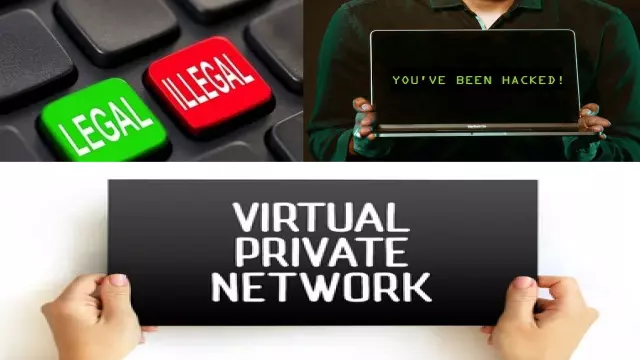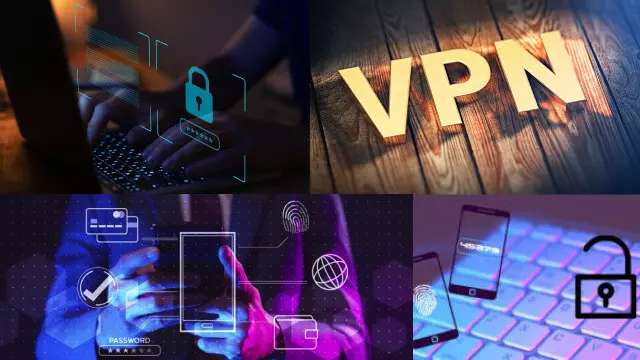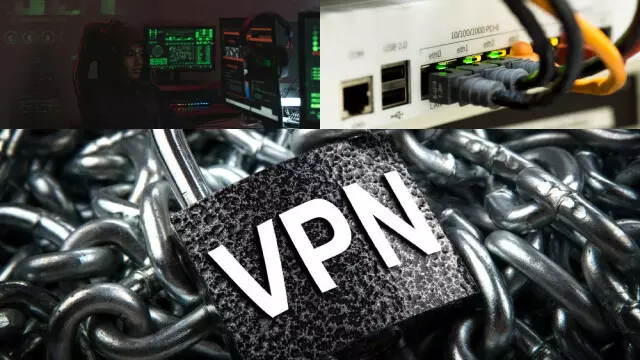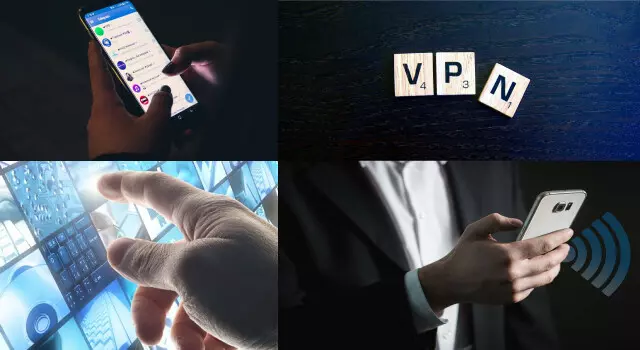Understanding the Legal Status of VPNs in 2025
Virtual Private Networks (VPNs) have become an increasingly popular tool for protecting online privacy and security. However, the legal status of VPNs can vary greatly depending on where you are located. In some countries, VPNs are fully legal and widely used, while in others they may be restricted or even banned.
It’s important to understand the legal status of VPNs in your country, as the consequences for using a VPN can range from a simple warning to fines and even imprisonment. In some countries, the use of VPNs may be restricted for political or security reasons, while in others it may be restricted for reasons such as protecting copyright or preventing illegal activities.

With the growing importance of online privacy and security, it’s essential to be aware of the legal status of VPNs and to take steps to protect your online information.
By understanding the legal status of VPNs, you can make informed decisions about how to use them and take steps to maintain your online privacy and security.
Are VPNs Legal in Your Country?
The legality of Virtual Private Networks (VPNs) depends on where you live. In many countries, VPNs are legal and used for online privacy and security. However, some countries restrict or ban them.
Before using a VPN, check the laws in your country. In some places, using a VPN can lead to warnings, fines, or even jail time. Governments may block VPNs for security, copyright protection, or to prevent illegal activities.
To stay safe, choose a trusted VPN provider and make sure it follows privacy rules. If you’re unsure about the laws, ask a legal expert.
In short, VPNs are legal in many places but restricted in others. Always check the rules and protect your online privacy wisely.
How Are VPNs Regulated in Different Countries?
The regulation of Virtual Private Networks (VPNs) can vary greatly depending on the country. In some countries, VPNs are fully regulated and subject to strict laws and regulations, while in others they may be less regulated or even unregulated.
In countries where VPNs are highly regulated, there may be restrictions on the types of VPNs that can be used, the types of online activities that can be performed using a VPN, and the types of information that can be transmitted over a VPN. In some cases, VPNs may also be required to log user data and provide this information to government agencies when requested.

On the other hand, in countries where VPNs are less regulated, there may be fewer restrictions on the use of VPNs. However, it’s important to be aware that using a VPN in an unregulated environment may still carry risks, as there may be no guarantee that the VPN service you’re using is trustworthy and respects your privacy.
In conclusion, the regulation of VPNs can vary greatly depending on the country. It’s important to be aware of the regulations in your country and to take steps to protect your online privacy and security, regardless of whether VPNs are highly regulated or not.
What Are the Consequences of Using a VPN Illegally?
Using a Virtual Private Network (VPN) illegally can have serious consequences, depending on the country where you are located. In some countries, the use of VPNs may be restricted or even banned, and breaking these laws can result in fines or even imprisonment.
In addition to the legal consequences, using a VPN illegally can also put your online privacy and security at risk. In some countries, VPNs may be monitored or blocked by government agencies, and using a VPN to evade these restrictions can result in your online activities being monitored or your personal information being compromised.
It’s important to understand the laws and regulations surrounding VPNs in your country, and to only use VPNs that are legal and trustworthy. If you’re unsure about the legality of VPNs in your country, it’s best to consult with a legal expert.
In conclusion, using a VPN illegally can result in serious consequences, including fines, imprisonment, and compromised online privacy and security. It’s important to understand the laws and regulations surrounding VPNs and to only use legal and trustworthy VPNs.
Are There Any Restrictions on Using a VPN in Certain Countries?
- In some countries, the use of VPNs may be restricted or even banned for political or security reasons, while in others it may be restricted for reasons such as protecting copyright or preventing illegal activities.
- In countries where VPNs are restricted, there may be limitations on the types of VPNs that can be used, the types of online activities that can be performed using a VPN, and the types of information that can be transmitted over a VPN.
- In some cases, the use of VPNs may be monitored or blocked by government agencies, and using a VPN to evade these restrictions can result in serious consequences.

It’s important to research the restrictions on VPNs in your country, and to only use VPNs that are legal and trustworthy. If you’re unsure about the restrictions in your country, it’s best to consult with a legal expert.
In conclusion, there are restrictions on the use of VPNs in certain countries, whether they are free vpn or paid. It’s important to understand the restrictions in your country and to take steps to protect your online privacy and security by using only legal and trustworthy VPNs like Planet VPN.
How to Use a VPN Legally and Safely in 2025
Using a Virtual Private Network (VPN) legally and safely in 2025 requires an understanding of the laws and regulations surrounding VPNs in your country, as well as taking steps to ensure the security of your online activities.
- Check VPN Laws in Your Country: research the laws and regulations surrounding VPNs in your country, and make sure that the VPN you use is legal and trustworthy.
Only use VPNs that have a good reputation, and avoid VPNs that have been linked to illegal activities.
- Protect Your Online Security: take steps to protect your online privacy and security. Use a VPN that uses strong encryption, and make sure that your VPN connection is always encrypted.
Avoid using public Wi-Fi networks when accessing sensitive information, and consider using a VPN that offers features such as a kill switch and multi-hop VPN connections.
- Understand VPN Limitations: be aware of the risks associated with using a VPN, and understand that there are limits to what a VPN can protect. VPNs can help to protect your online privacy and security, but they cannot guarantee it.
In conclusion, To use a VPN legally and safely in 2025, follow the law, choose a trustworthy provider, and use security features to protect your privacy. Stay informed about risks and best practices to maximize your online safety.
Can You Get in Trouble for Using a VPN at Work or School?
Yes, you can get in trouble for using a Virtual Private Network (VPN) at work or school. Employers and schools may have policies that prohibit the use of VPNs, as they may interfere with the security of the network or be used to bypass restrictions set by the organization.
If you are caught using a VPN at work or school, the consequences can vary depending on the policies and regulations of your organization. You may face disciplinary action, including being fired or expelled, or you may have your access to the network revoked.
In some cases, using a VPN may also be a violation of the terms of service of your internet service provider (ISP), and using a VPN to bypass network restrictions may result in your ISP taking legal action against you.
In conclusion, using a VPN at work or school can result in trouble. Before using a VPN, it’s important to understand the policies and regulations of your organization, as well as the terms of service of your ISP.
If you’re unsure about the consequences of using a VPN at work or school, it’s best to consult with a legal expert.
Conclusion: The Importance of Understanding the Legality of VPNs in 2025
In conclusion, understanding the legality of Virtual Private Networks (VPNs) in 2025 is crucial for anyone who wants to use a VPN for online privacy and security.
Different countries have different laws and regulations surrounding VPNs, and it’s important to be aware of these laws and regulations to ensure that you use a VPN legally and safely.
Failing to understand the legality of VPNs can result in consequences such as being fired or expelled from work or school, or facing legal action from your internet service provider (ISP).

It’s also important to choose a reputable and trustworthy VPN, and to take steps to ensure the security of your online activities. This includes researching the laws and regulations surrounding VPNs in your country, and using a VPN that offers strong encryption and privacy features.
In summary, understanding the legality of VPNs is essential in 2025, and taking the time to educate yourself on the laws and regulations surrounding VPNs, as well as choosing a trustworthy and secure VPN, can help to ensure that you use a VPN legally and safely.